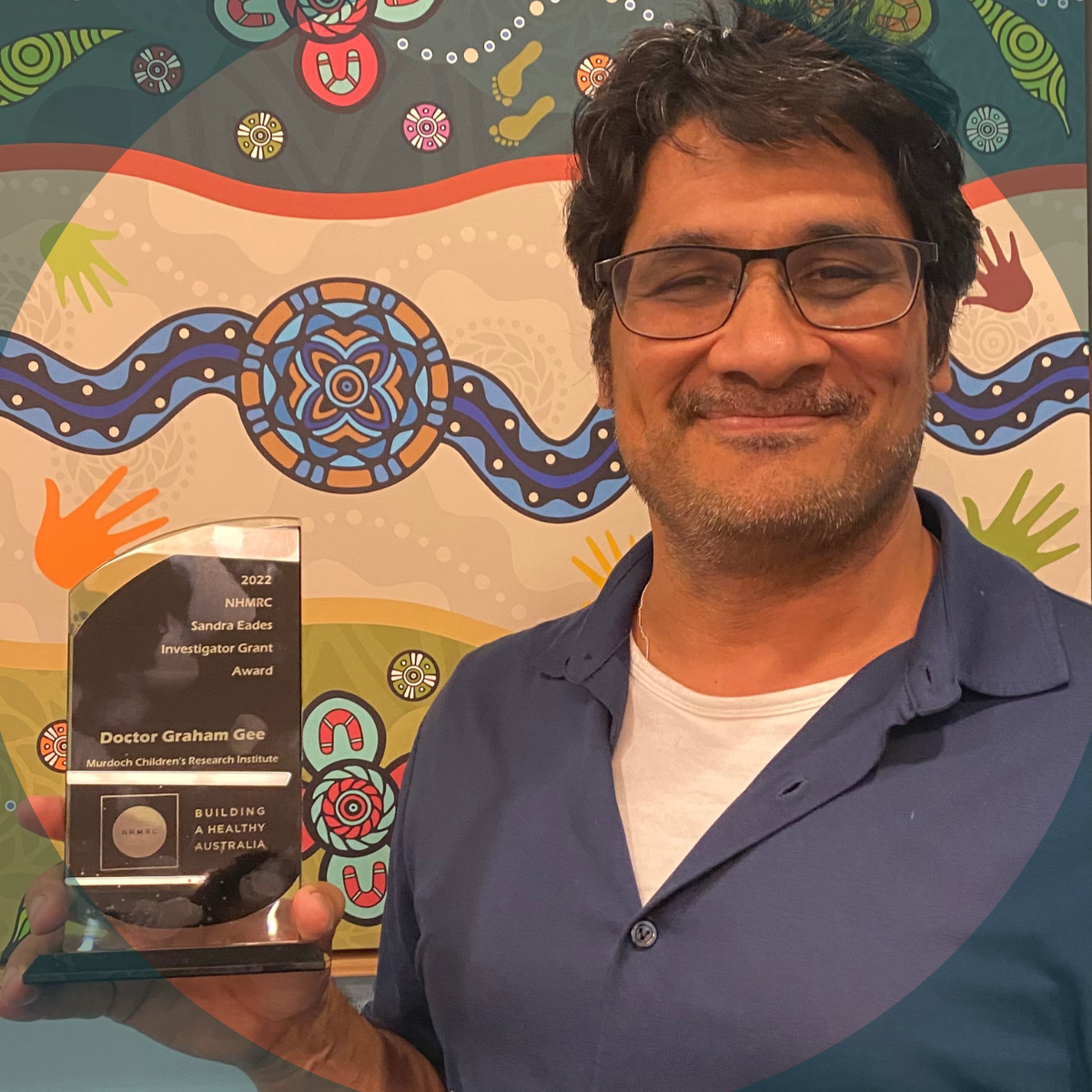Dr Graham Gee is an Aboriginal-Chinese man, also with Celtic heritage, originally from Darwin. His Aboriginal-Chinese grandfather was born near Belyuen on Larrakia Country. Dr Gee is a clinical psychologist and has worked at the Victorian Aboriginal Health Service for 11 years before taking up a research position at the Murdoch Children’s Research Institute. His early career research focused on Aboriginal and Torres Strait Islander mental health, social and emotional wellbeing, resilience and complex trauma. In 2022, Dr Gee commenced working in partnership with several Victorian Aboriginal services dedicated to healing child sexual abuse. Read more to find out more about Dr Gee’s research, in his own words.
Fifteen years ago, as a fledgling psychologist I met a courageous young adult who had experienced things in childhood no one should ever have to endure. None of my education and training was adequate to respond to the extent of emotional pain, injustice, and long-term impacts experienced by this brave individual who had confided to me, looking for support.
Over the next decade, I discovered that not only were experiences of child sexual abuse all too common among people seeking help from mental health services, but most of them carried their wounds and suffered in silence for decades.
Nearly all these individuals were unable to disclose their experiences beyond the confines of the counselling room, due to stigma, lack of safety, and fear of reprisal. Sadly, for most survivors who find the courage to come forward seeking justice, the experience of the legal system is often one of heartbreak, disappointment, and even re-traumatisation.
International data spanning more than 130 countries has found that approximately one in five women and one in ten men worldwide have been sexually abused as a child.
The long-term impacts associated with child sexual abuse are well documented. It has taken time, but coordinated global and national efforts to address child sexual abuse are now underway. The United Nations has recognised child sexual abuse as a global emergency, declaring November 18 a “World Day for Prevention of and Healing from Child Sexual Exploitation, Abuse and Violence”. In 2021, the first Australian National Strategy to prevent and respond to child sexual abuse was endorsed by Commonwealth, state and territory governments. These initiatives signal a united call to action for an entirely preventable human rights issue experienced far too often by children around the world.
Many Victorian Aboriginal Elders, leaders and practitioners from different communities have been committed to tackling this difficult issue for decades. Child sexual abuse is not part of Victorian Aboriginal cultures, therefore there is a strong consensus. These experiences of violence are linked to legacies of intergenerational trauma and colonisation.
There is also an agreement that healing approaches need to be grounded in Aboriginal systems of knowledge and cultural values that prioritise the safety of children, adults, and families, and involve the community responses.
My early career research has focused on developing Aboriginal and Torres Strait Islander designed assessment tools and evaluating programs that help identify personal, relationship, community and cultural determinants of wellbeing associated with a range of outcomes, including complex trauma. Now, my team and I have partnered with six Victorian Aboriginal services committed to addressing the issue of child sexual abuse. Together, we are co-designing a five year program of research. Phase one will focus on supporting practitioners and services, phase two on supporting survivors, and phase three on supporting communities through early intervention and prevention work.
We will investigate evidence for promising cultural and therapeutic practices, and core elements of care specific to Aboriginal healing services supporting survivors. We will run communities of practice to investigate how to best support practitioner wellbeing, and foster skills and knowledge exchange in this complex area of work.
Our efforts will then turn towards developing new healing and recovery responses based on the voices and needs of survivors.
It is an honour to receive an award named after Professor Sandra Eades, a trail blazer and leader in Indigenous health research. On behalf of my team and our Victorian Aboriginal partner services, I thank the NHMRC for this award and the Emerging Leadership Grant that will enable us to progress this work.

